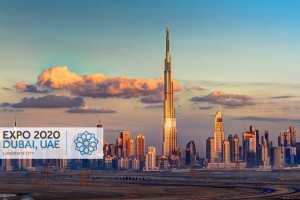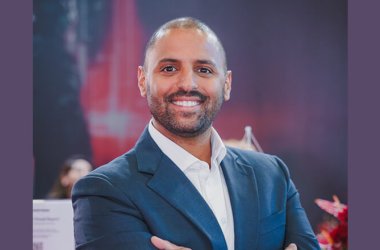 On 26 November, 2013, Dubai was awarded the opportunity to host the World Expo 2020. And with this, the city has been given a chance to make huge developments.
On 26 November, 2013, Dubai was awarded the opportunity to host the World Expo 2020. And with this, the city has been given a chance to make huge developments.
Beating off competition from Brazil’s Sao Paolo, Turkish city Izmir and Yekaterinburg of Russia, Dubai was voted as the city that would stage the exposition, and has become the first city in the Middle East region to be charged with the task.
With over 25 million visitors expected to descend on Dubai for the event, it promises to be a major opportunity for business and IT development.
IDC recently forecast that $7-8 billion could be spent on IT infrastructure build leading up to the event, so it should present a huge opportunity for the region’s IT scene to grow.
Yassine Zaied, Executive Vice President, Sales, Nexthink Middle East, believes that IT services for visitors need to be of premium quality. “Businesses will have to manage and evolve their IT environment to support the increased number of end-users and endpoints and ensure its performance, stability and security,” he says. “These IT investments will better support end-users in preparing the expo and delivering the best services to visitors that will come to Dubai. Dubai has a fantastic reputation as a business hub in the region and the IT enabling the preparations and supporting the expo itself has to be managed carefully to deliver the fantastic level of services to the visitors that will be drawn to Dubai.”
Heavy infrastructure investment seems inevitable, and along with transport, hospitality and a variety of other public services, IT will almost certainly benefit. Pan En, Vice President, Huawei Middle East, feels Dubai’s expo philosophy will stand it in good stead: “The theme of ‘Connecting Minds, Creating the Future’ for the Dubai Expo 2020 is in many ways a recognition of the profound social and economic benefits that ICT infrastructure has already had in the UAE and across the wider region,” he explains.
“While the UAE’s IT sector will definitely benefit, owing to a strong government mandate for encouraging technology innovation on the local level, an event like the Dubai Expo 2020 will also accelerate the deployment of ICT infrastructure regionally by opening up a host of new multinational investment opportunities.”
Several emerging IT trends are seemingly guaranteed to benefit from expo. At the top of that list is the trend of smart cities. Dubai is already in a relatively strong position in this respect, with its E-Dirham, E-Government and E-Commerce offerings all modern smart services, but Expo 2020 will serve to accelerate this development Emirates-wide.
En feels that smart cities will be a huge catalyst for a successful Expo: “Smarter utility grids, intelligent office buildings, alternative energy programmes, and mobile broadband networks will be just some of the avenues through which ICT will empower businesses to grow during the build-up to the Expo,” he says.
“Dubai is already pioneering in its efforts to advance smart city infrastructure, with future mega-projects already being announced by local developers and authorities. Industries such as transportation, healthcare, hospitality, and others will necessarily become more ‘digitised’ as part of that master planning―giving organisations a real-time view of their expanding operations.”
Zaied believes that smart cities will appear in a variety of environments and technologies. “Leading up to 2020, homes, businesses and offices will leverage IT to become smarter,” he says. “For example, extensive usage of automation technologies at home will be paralleled with the increase of cloud-based social and analytics technologies in businesses and cities.
“Wearable connected computing will continue to gain momentum. Technology will evolve everyday items such as glasses, clothing, and accessories; we will access augmented reality and be able to receive smarter information everywhere.”
With a huge number of tourists flocking to the UAE, and with increased infrastructure planning for Expo 2020, there’ll be a large influx of data. That necessitates a greater need for Big Data analytics.
Habib Mahakian, Regional General Manager, Gulf and Pakistan, EMC, appreciates the need for forward-thinking Big Data solutions: “According to the IDC Digital Universe Study, the digital universe will reach 40 zettabytes by 2020, an amount that exceeds previous forecasts by 5 ZB, resulting in a 50-fold growth from the beginning of 2010,” he says. “This means that the patch of the digital universe that the CIOs and their IT staff need to manage will become not just bigger but also more complex, and enterprises will need more specialised, flexible, and scalable IT infrastructure that extends beyond the enterprise.”
Zaied is also aware of the need to avoid being bogged down by Big Data. “Businesses have to manage this massive amount of information, which is driving IT investments into additional storage, network capacity and end-user driven technologies and applications,” he says. “This massive volume of data and IT services is impossible to comprehend, and IT departments need to leverage real-time IT analytics to understand how applications and IT services are being consumed by end-users, and how the IT infrastructure is operating, to deliver the best quality of service.”
En feels that the current stage of Big Data is the tip of the iceberg, and has huge potential for all companies large and small. “Today we are only beginning to see how concepts like Big Data intelligence and M2M communication can be applied to our daily lives,” he says. “It will be important for all organisations―from SMEs to large multinationals and public entities―to put even more emphasis on long-term ROI as they plan their ICT strategy leading up to 2020.”
On top of smart city growth and Big Data analytics developments, a consolidation of―and in many cases, wholesale changes to―infrastructure may be necessary, according to a variety of industry experts.
Mahakian feels that organisations will need to evaluate their current architectures. “End-users will have to revisit their existing technology architecture and reassess how it can aid them achieve their goals,” he says. “For many, this would mean a complete overhaul, for others it would mean a change in their role as end-users in many cases will become service providers for their own stakeholders in addition to becoming service providers for other companies as well.
“Enterprises will need more specialised, flexible, and scalable IT infrastructure that extends beyond the enterprise and will need the skillsets to support these implementations.”
Hussein Hamza, Gulf Cluster Leader, Oracle, believes industry standards must be met: “Businesses need to consolidate the infrastructure―create capacity to store, manage, interrogate and make decisions on accurate, complete information,” he says. “In this way, infrastructure can grow in a manageable, cost effective way.
“They also need to standardise and integrate, to create systems based on open, industry standards, and where possible create one instance of the truth―such as the citizen record or the patient health record―and make them available to multiple departments.”
Given the World Expo’s record of being a platform for unveiling exciting products, Hamza feels Expo 2020 will have a lot in store in terms of innovation: “Past expos have presented new technologies as an integral part of the preparations and of the event itself,” he says. “Broadcast television, the X-ray machine and the diesel engine have all made their debut at expos in years gone. We do expect Expo 2020 to follow the same trend and introduce multiple innovative IT products to the industry.”





